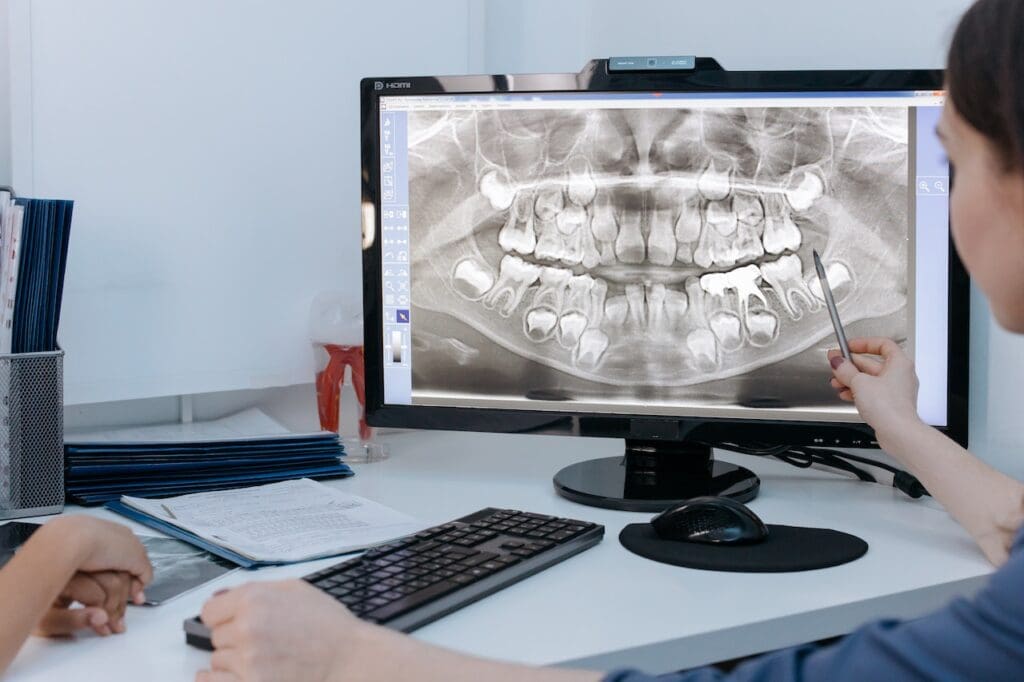Periodontal disease is a severe infection of the gums and underlying bone, which can cause tooth loss and other health issues if left untreated. It is a common dental problem that affects people of all ages, caused by the buildup of plaque and tartar on the teeth.
There are different types of periodontal disease, each with its symptoms, causes, and treatments.
If you think you have periodontal disease, this article will help you learn about the different kinds and how to treat them.
Periodontal Diseases and Their Treatments
1. Gingivitis
Gingivitis is the mildest form of periodontal disease caused by plaque buildup on the teeth. It is characterized by red, swollen, and bleeding gums. It can be easily treated by practicing good oral hygiene, brushing and flossing regularly, and getting professional dental cleanings.
2. Periodontitis
Periodontitis is a more severe form of periodontal disease that occurs when gingivitis is left untreated. This is characterized by the formation of pockets between the teeth and gums, which can lead to bone and tooth loss. Periodontitis can be treated with scaling and root planing, which involves removing the plaque and tartar from the teeth and smoothing the tooth roots. In more severe cases, surgery may be necessary to repair the damaged tissue and bone.
3. Aggressive Periodontitis
Aggressive periodontitis is a rare but severe form of periodontal disease that can cause rapid destruction of the bone and tissue that support the teeth. It usually affects young people and is caused by genetic factors, poor oral hygiene, and other factors.
Its treatment involves scaling and root planing, antibiotics, and surgery in severe cases.
4. Chronic Periodontitis
Chronic periodontitis is the most common form of periodontal disease, characterized by the gradual destruction of the bone and tissue supporting the teeth. It typically affects adults and is caused by the buildup of plaque and tartar on the teeth. Like aggressive periodontitis, it can be treated with scaling and root planing, antibiotics, and surgery in severe cases.
5. Necrotizing Periodontal Disease
Necrotizing periodontal disease is a severe form of periodontal disease that can cause the death of the gum tissue, bone, and ligaments that support the teeth. Its symptoms are painful ulceration of the gums, bad breath, and fever.
Necrotizing periodontal disease is caused by bacterial infection and can be treated with antibiotics, dental cleanings, and in severe cases, surgery.
6. Periodontal Disease Prevention
The best way to prevent periodontal disease is to practice good oral hygiene, like brushing and flossing regularly, getting regular dental cleanings, and avoiding smoking and tobacco use. Additionally, a healthy diet and lifestyle can help prevent the buildup of plaque and tartar on the teeth, which are the main cause of these diseases.
Conclusion
Without proper treatment, periodontal diseases can cause irreversible damage to oral health, making it crucial to seek professional help as soon as symptoms arise.
An experienced dentist can thoroughly examine your teeth and gums, identify the cause of the disease, and recommend an appropriate treatment plan.
We at Danvers Aesthetic Family Dentistry can check your teeth and gums, determine the problem, and propose a treatment strategy. Being the best family dentist in Danvers, we provide guidance on maintaining good oral hygiene and preventing future periodontal diseases. Contact us to book your appointment today!

